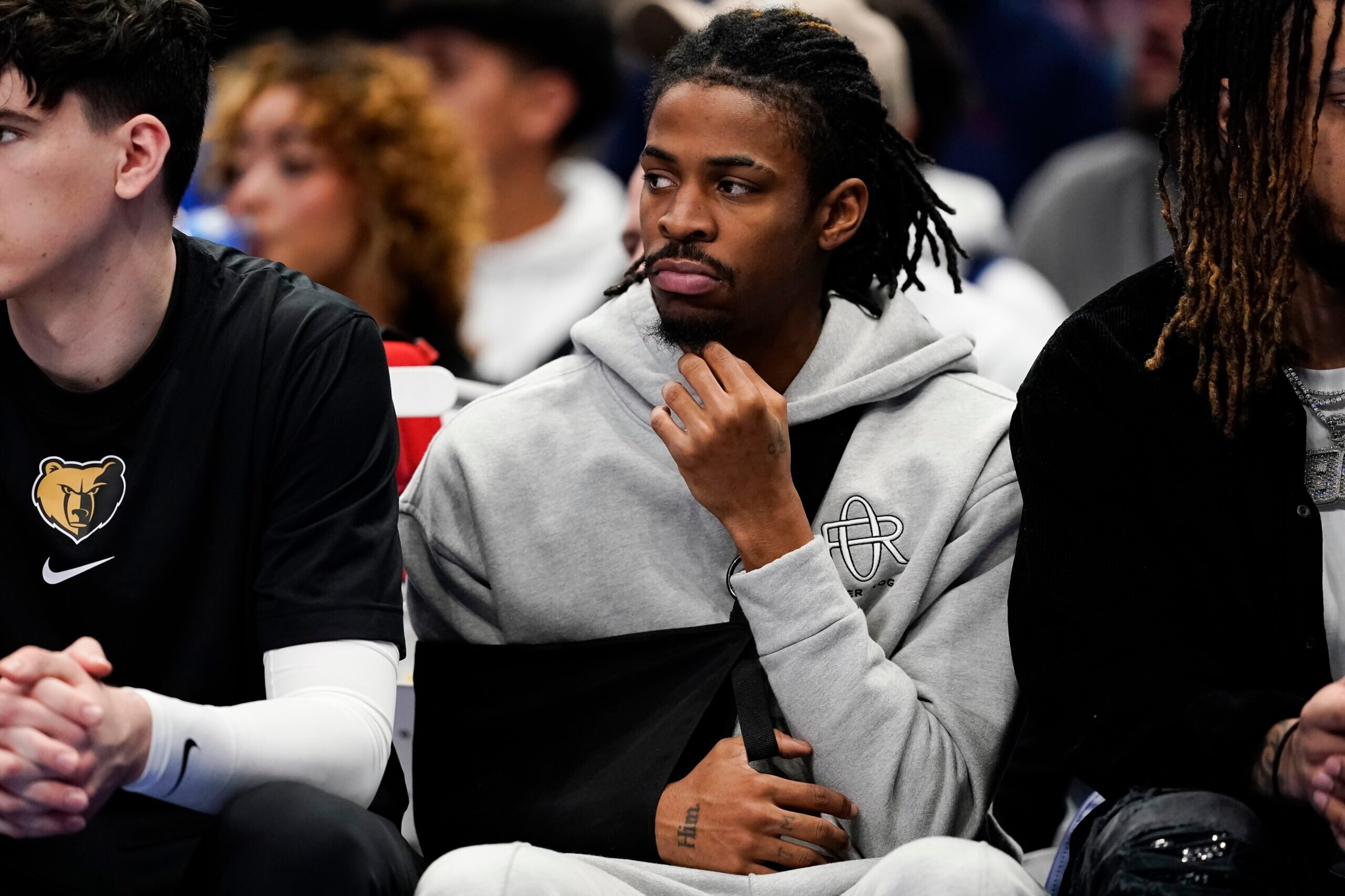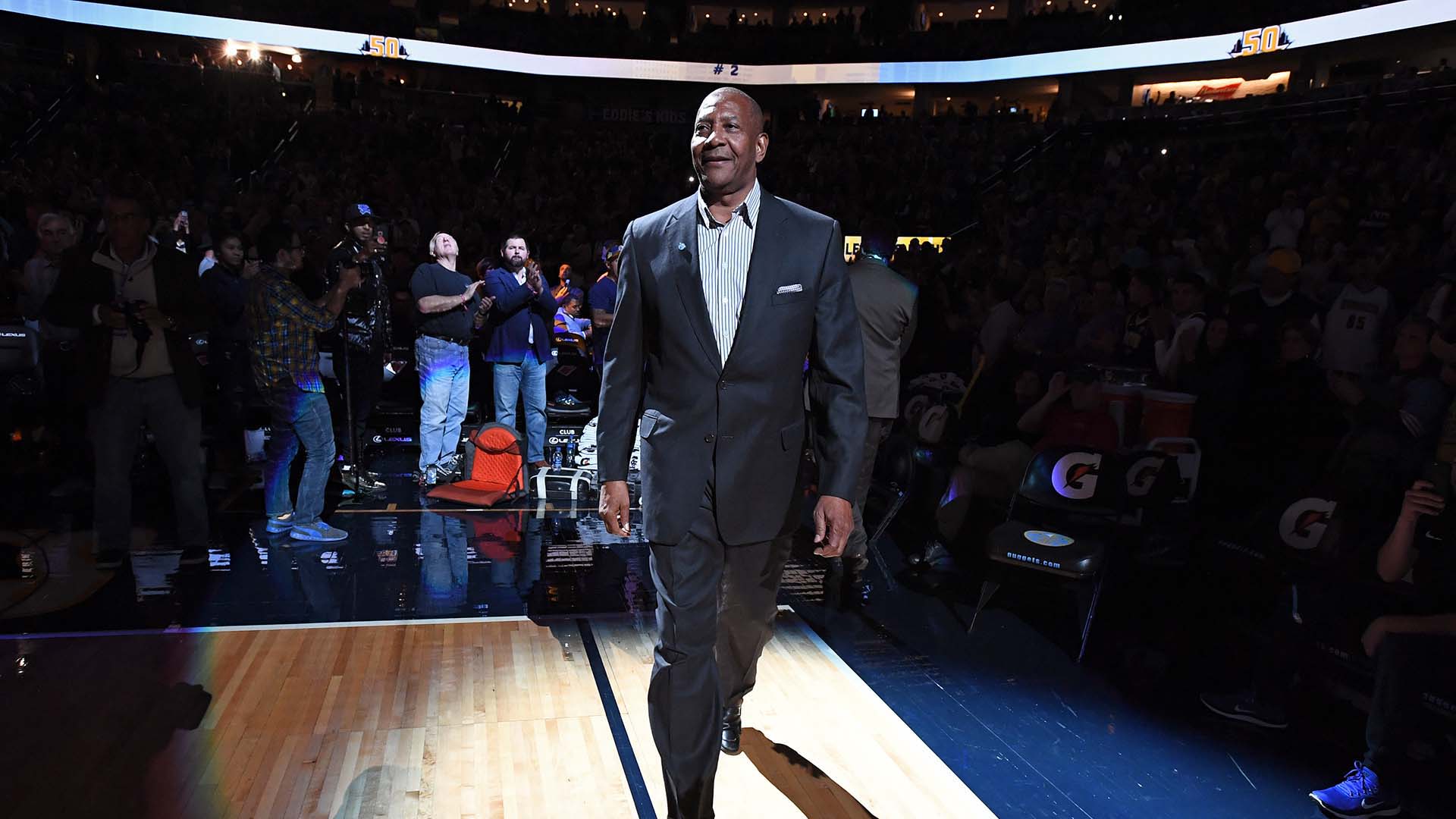MEMPHIS – Fresh off his 70th birthday this month and latest daily workout, Basketball Hall of Famer Alex English doesn’t wonder how his game would fare in today’s NBA.
He’s certain it would be a seamless fit. That’s largely because those fast-paced, prolific scoring Denver Nuggets he led during the 1980s were far ahead of their time.
“I know we were,” English said through a proud laugh as he reflected. “We’re still the highest-scoring team and played the highest-scoring game in NBA history. With the pace we played at, I’ve been looking forward it to come back around. And it’s come back with a vengeance.”
Lighting up scoreboards and filling stat sheets during a 15-year NBA career that included eight All-Star appearances, three All-NBA selections and a league scoring title only define part of English’s legacy. He’s been just as prolific in community service ventures off the court that involve feeding and housing communities and raising funds for various scholarships.
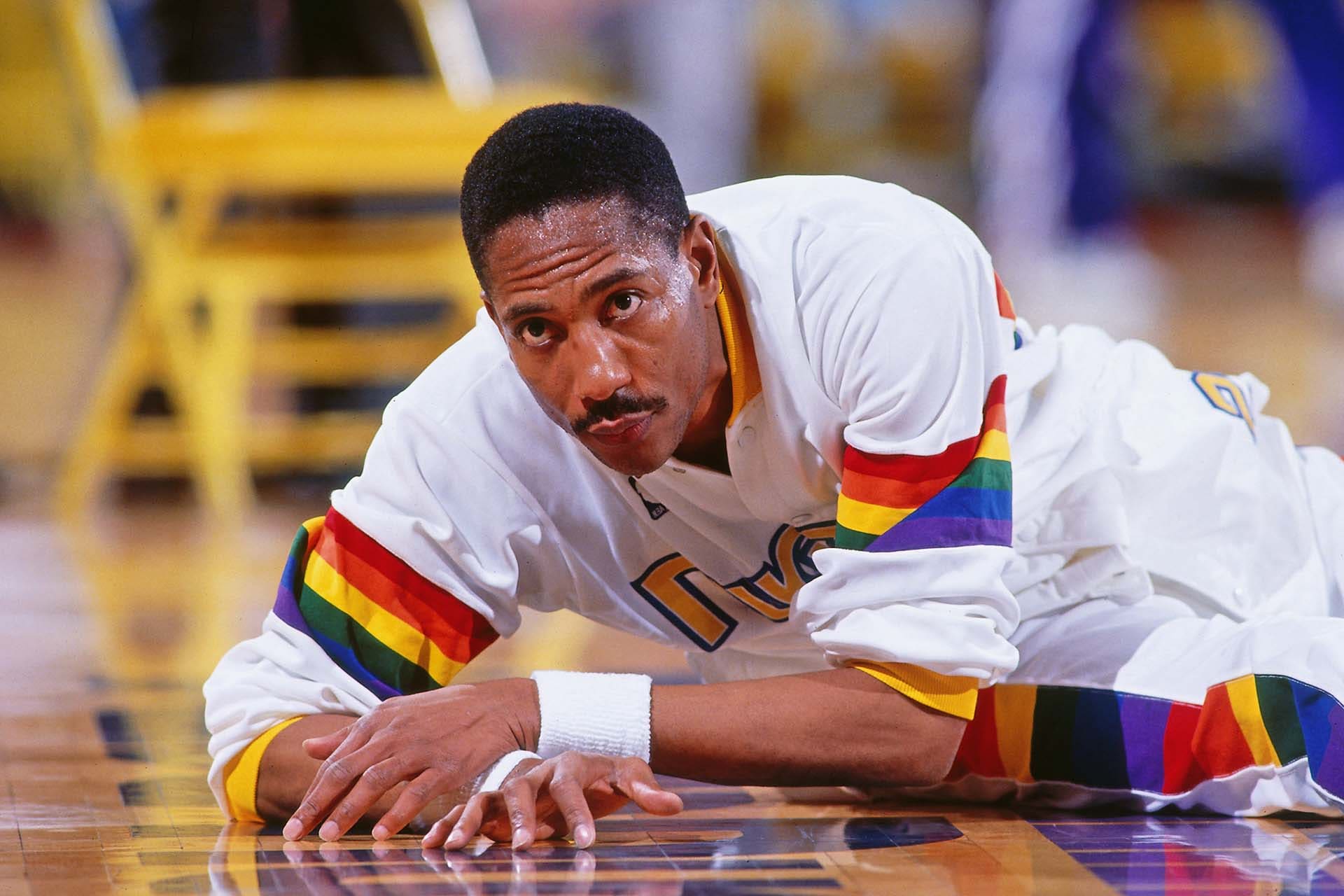
Those accolades on the court and his impact off it will be highlighted in Memphis by the NBA and Grizzlies as part of the 22nd annual Martin Luther King Jr. Weekend celebration events.
English joins Major League Baseball Hall of Famer Ozzie Smith, NFL Pro Bowl running back Calvin Hill and two-time WNBA champion and activist Renee Montgomery as recipients of the 19th annual National Civil Rights Museum Sports Legacy Award. The ceremony at FedExForum will precede Monday’s MLK Celebration Game between the Grizzlies and Golden State Warriors.
English’s 25,613 career points rank 21st on the NBA’s all-time scoring list, and he was the first player in league history to score at least 2,000 points for eight consecutive seasons.
Ahead of his trip to Memphis for this weekend’s MLK Celebration events, English spoke with Grind City Media about his career, King’s legacy and fellow South Carolina native Ja Morant.
GCM: What’s your reaction to being part of this Sports Legacy Award class on MLK Weekend?
English: “I’m excited and honored. It’s something I’m looking forward to. Being there with the other greats in sports is just an honor. I haven’t been to Memphis in a while, and I look forward to just accepting the award. I get to bring my son. He’ll get a chance to be part of honoring his dad’s legacy that he might have been too young to see and understand when I played.”
GCM: As a youth born in the 1950s and growing up during the 1960s and early 1970s, what was your view of Dr. King’s impact on the Civil Rights Movement?
English: “Dr. King’s journey was very much highlighted during my growth as a young person. It was in the forefront of African-American society because we were trying to achieve equal rights and fair treatment. So, there was a lot that I can remember – the March on Washington (1963), the great ‘I Have a Dream’ speech, the ‘Letter From A Birmingham Jail.’ I studied all of that. Just the non-violent movement he put together, and the fact it took a lot of courage to put your life and your family’s lives on the line. Understanding the necessity of him doing that was very important. He knew the sacrifice and he accepted the possibilities.
“I admire the courage that it took for him to do that. It’s a legacy that will go on and on. It’s important we educate and share his vision and his life with our young people, so they won’t get content with the freedoms we have and the freedoms that are assumed. It’s important they realize the fight is never over. It’s a fight we must continue to be on the front lines dealing with.”
GCM: In what ways have you incorporated Dr. King’s legacy in your daily life?
English: “The biggest thing is just giving back to support underprivileged communities. I have my own foundation called the ‘Let’s Share Foundation’ and it encompasses a variety of things, but most importantly making sure homeless families are fed, clothed and given possibilities.
“We’re also working with Family Promise, both nationally and locally. Family Promise is all about finding shelter for homeless families and making sure they’re able to move forward with their lives in a comfortable way. Just throughout my life, I’ve participated in different organizations and charities, whether it’s raising money for scholarships or feeding the homeless or feeding families during the holidays. There are so many opportunities you can put effort into.”
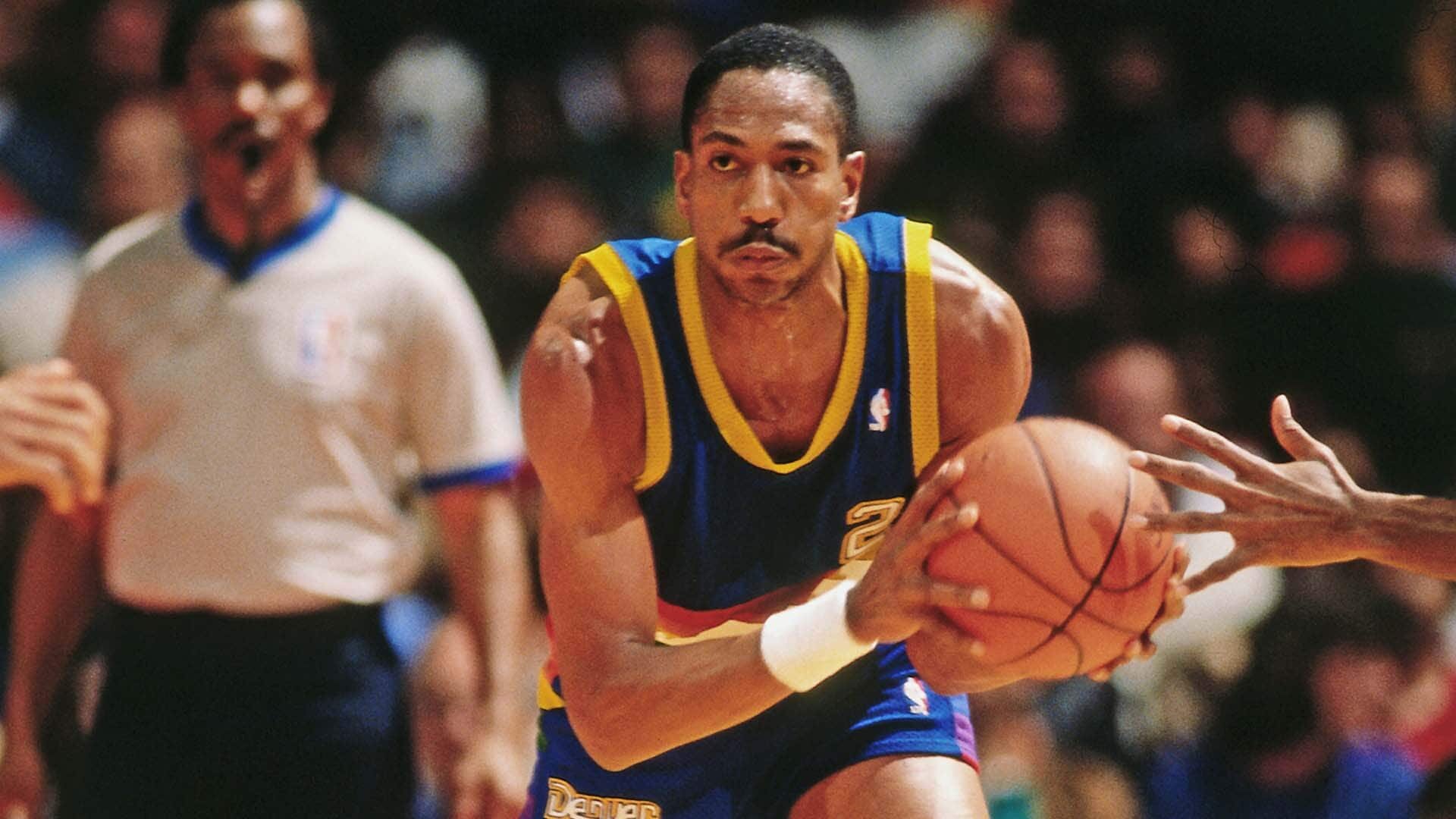
GCM: Your Denver Nuggets teams in the 1980s set NBA scoring records. How do you feel about seeing the league cycling back to that high-scoring, high-pace style of play?
English: “I like the game (overall). I’m kind of disappointed in some aspects, because the 3-point shot is wonderful but if you think about the greatest who have played the game, the creativity between the 3-point line and the basket is what made them who they are. You’re talking about Michael Jordan, Julius Erving, Tiny Archibald, Walt Frazier, Bill Russell. All of them. What they did between the 3-point line and the goal – that’s where the game’s beauty is, in the creativity.”
GCM: With that said, who do you see in today’s NBA that most reminds you of your game?
English: “That’s hard because basketball is such a unique sport and the talent is so unique. I think Kevin Durant’s body size and fluidity are similar. I wasn’t a 3-point shooter like him, but it’s kind of the same. Kawhi Leonard also, in the way he’s more of a mid-range specialist, and I like that. But as far as the size, I was 6-foot-8 and 195 pounds. I was a lightweight. But I could be effective in the post as a post-up guy. My lower body was strong, and I wouldn’t get pushed out. I learned and I worked on that. The fluidity that those two players have are very similar.”
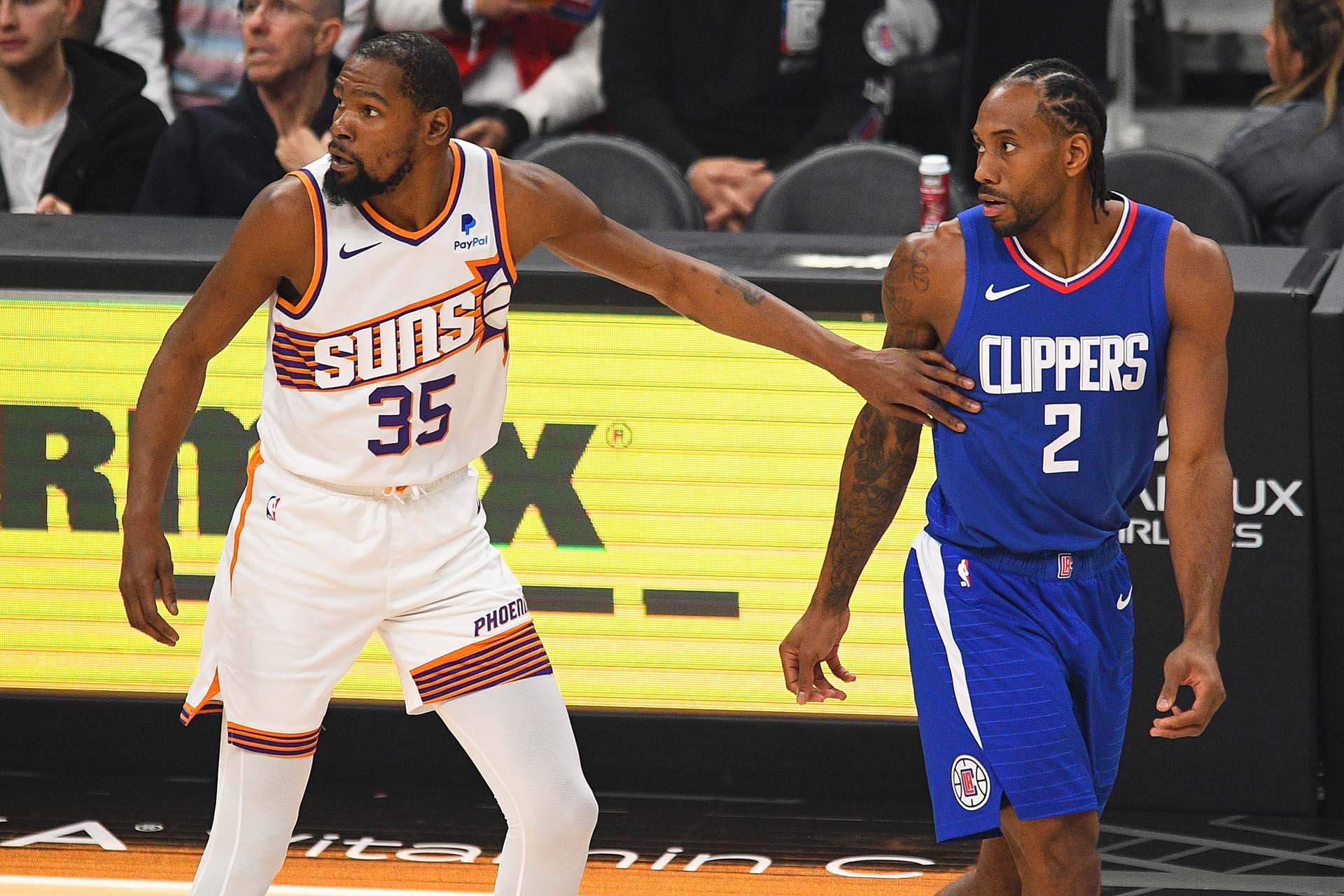
GCM: You’ve listed a fellow South Carolina native Ja Morant as one of your favorites to watch because of his impact with the Grizzlies. How do you feel about his initial years in the NBA?
English: “I love his game. I’m proud he’s a South Carolinian like myself and so many others . . . Ray Allen, Ty Corbin, Jermaine O’Neal, Kevin Garnett, A’ja Wilson and so many others, with more to come. The tradition of basketball in South Carolina is varied and great. Ja is in that group. I would personally like to see him get control of the outside forces that come and are part of this game. It’s nothing new. It happens in every generation. Once he gets that under control, he’s going to be contending for one of the greatest players of his time.
“Because he will have that focus. One of the things that help a lot of guys focus is when they get a family, when they have a wife or partner and have kids. They realize this opportunity in the game is a very brief thing. If you get 15, 16 years, that is exceptional and not a lot of guys get that. You’ve got to build your legacy and what you’re about during that time.”
GCM: You were looking forward to seeing Ja play in person. Unfortunately, he had season-ending shoulder surgery this week. What advice would you give him as he recovers?
English: “I really was hoping to see him play live when I got to Memphis. It’s unfortunate he’s out, because he looked like he was ready to come back and tear the league up. But I’m hoping and praying that he has a great career and a long career, because he can have a (huge) impact on the game, both on and off the court. That off-the-court part is the part that really gives you more satisfaction because you can have an effect on people’s lives in more than just basketball.”
